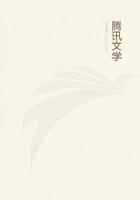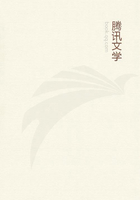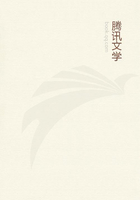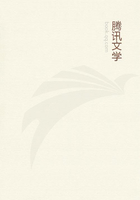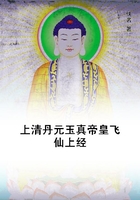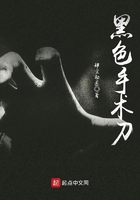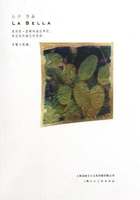Just as these magical efforts to influence like by like work their way into Vedic and other religions, so they are introduced into the religion of the savage. His prayers are addresses to some sort of superior being, but the efficacy of the prayer is often eked out by a little magic, unless indeed we prefer to suppose that the words of the supplication are interpreted by gesture-speech. Sproat writes: "Set words and gestures are used according to the thing desired. For instance, in praying for salmon, the native rubs the backs of his hands, looks upwards, and mutters the words, 'Many salmon, many salmon'. If he wishes for deer, he carefully rubs both eyes; or, if it is geese, he rubs the back of his shoulder, uttering always in a sing-song way the accustomed formula. . . .
All these practices in praying no doubt have a meaning. We may see a steady hand is needed in throwing the salmon-spear, and clear eyesight in finding deer in the forest."
Savage Life, p. 208.
In addition to these forms of symbolical magic (which might be multiplied to any extent), we find among savages the belief in the power of songs of INCANTATION. This is a feature of magic which specially deserves our attention. In myths, and still more in marchen or household tales, we shall constantly find that the most miraculous effects are caused when the hero pronounces a few lines of rhyme. In Rome, as we have all read in the Latin Delectus, it was thought that incantations could draw down the moon. In the Odyssey the kinsfolk of Odysseus sing "a song of healing" over the wound which was dealt him by the boar's tusk. Jeanne d'Arc, wounded at Orleans, refused a similar remedy. Sophocles speaks of the folly of muttering incantations over wounds that need the surgeon's knife. The song that salved wounds occurs in the Kalewala, the epic poem of the Finns. In many of Grimm's marchen, miracles are wrought by the repetition of snatches of rhyme. This belief is derived from the savage state of fancy. According to Kohl, "Every sorrowful or joyful emotion that opens the Indian's mouth is at once wrapped up in the garb of a wabanonagamowin (chanson magicale). If you ask one of them to sing you a simple innocent hymn in praise of Nature, a spring or jovial hunting stave, he never gives you anything but a form of incantation, with which he says you will be able to call to you all the birds from the sky, and all the foxes and wolves from their caves and burrows." The giant's daughter in the Scotch marchen, Nicht, Nought, Nothing, is thus enabled to call to her aid "all the birds of the sky". In the same way, if you ask an Indian for a love-song, he will say that a philtre is really much more efficacious.
The savage, in short, is extremely practical. His arts, music and drawing, exist not pour l'art, but for a definite purpose, as methods of getting something that the artist wants. The young lover whom Kohl knew, like the lover of Bombyca in Theocritus, believed in having an image of himself and an image of the beloved.
Into the heart of the female image he thrust magic powders, and he said that this was common, lovers adding songs, "partly elegiac, partly malicious, and almost criminal forms of incantation".
Page 395.
Cf. Comparetti's Traditional Poetry of the Finns.
Kitchi gami, pp. 395, 397.
Among the Indo-Aryans the masaminik or incantations of the Red Man are known as mantras. These are usually texts from the Veda, and are chanted over the sick and in other circumstances where magic is believed to be efficacious. Among the New Zealanders the incantations are called karakias, and are employed in actual life.
There is a special karakia to raise the wind. In Maori myths the hero is very handy with his karakia. Rocks split before him, as before girls who use incantations in Kaffir and Bushman tales. He assumes the shape of any animal at will, or flies in the air, all by virtue of the karakia or incantation.
Muir, Sanskrit Texts, v. 441, "Incantations from the Atharva Veda".
Taylor's New Zealand; Theal's Kaffir Folk-Lore, South-African Folk-Lore Journal, passim; Shortland's Traditions of the New Zealanders, pp. 130-135.
Without multiplying examples in the savage belief that miracles can be wrought by virtue of physical CORRESPONDANCES, by like acting on like, by the part affecting the whole, and so forth, we may go on to the magical results produced by the aid of spirits. These may be either spirits of the dead or spiritual essences that never animated mortal men. Savage magic or science rests partly on the belief that the world is peopled by a "choir invisible," or rather by a choir only occasionally visible to certain gifted people, sorcerers and diviners. An enormous amount of evidence to prove the existence of these tenets has been collected by Mr. Tylor, and is accessible to all in the chapters on "Animism" in his Primitive Culture. It is not our business here to account for the universality of the belief in spirits. Mr. Tylor, following Lucretius and Homer, derives the belief from the reasonings of early men on the phenomena of dreams, fainting, shadows, visions caused by narcotics, hallucinations, and other facts which suggest the hypothesis of a separable life apart from the bodily organism.
It would scarcely be fair not to add that the kind of "facts"investigated by the Psychical Society--such "facts" as the appearance of men at the moment of death in places remote from the scene of their decease, with such real or delusive experiences as the noises and visions in haunted houses--are familiar to savages.
Without discussing these obscure matters, it may be said that they influence the thoughts even of some scientifically trained and civilised men. It is natural, therefore, that they should strongly sway the credulous imagination of backward races, in which they originate or confirm the belief that life can exist and manifest itself after the death of the body.
See the author's Making of Religion, 1898.

